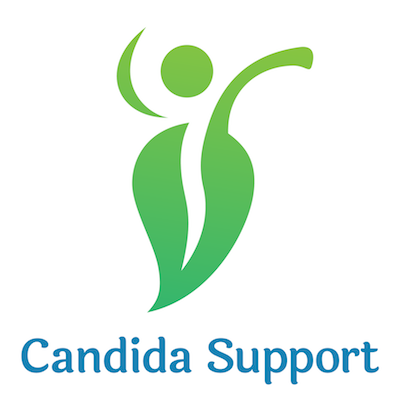Candida Albicans
Nobody can say for sure when Candida started becoming a problem for people. We know that healthy Candida is a normal part of the human digestive system. But we suspect that "problem" Candida (the morphed fungal yeast that takes over your system, crowding out the good balance in your microbiome) has become much more prevalent in the past decades as our eating habits and medicines have drastically changed. Many people in the health and wellness field estimate that 80-90% of people in modern societies now have some level of fungal overgrowth.
Who Typically Develops Candida Yeast Overgrowth?
Just about anyone can fall victim to the intestinal imbalance called Candida overgrowth. Most of us have at least some experiences or habits that often trigger Candida overgrowth activity.
Many people associate Candida with a female vaginal yeast infection, and that may well be a symptom of a more deep-rooted problem. Bloating, exhaustion, chronic sinus infections and body rashes are other symptoms that may present. As fungus proliferates in us it drags our entire system down. The parts of us that are weaker or compromised in some way are the first to show problems.Candida overgrowth in these rising numbers has occurred for more than a few reasons: toxicity, among them, use of antibiotics, sugary and refined foods.
Toxic Load
There is evidence that fungus is one of nature's tools to eliminate toxic buildups in the environment. Mushrooms actually have been used to digest toxic sludge, turning the whole mess into a harmless organic mix.
There is speculation that with the growing toxic load in the modern human body (mercury and other "heavy" metals being the major ones), our normally benign fungus morphs into this new form and multiplies itself in order to attack the heavy metals and toxins that have accumulated in us. This is a common view held by Naturopathic doctors.
You may have seen trees with mushrooms growing on them - nature's way of returning them to the ground. Candida is an overgrowth, an imbalance of a fungal death process prematurely begun in our bodies. It's best if we stop that process - and the sooner the better.How can this Candida yeast be so active? The fungal yeast cells in your body ingest the sugars and carbs you eat and then these same yeast cells eliminate alcohols and expel a large variety of poisons called mycotoxins (myco means fungal; toxins means poisons.) These Candida toxins create problems of their own throughout our bodies -- slowly poisoning us in varied and unique ways according to our individual vulnerabilities and lifestyle choices.
“You’re not only dealing with Candida yeast overgrowth but also the fact that Candida albicans puts out 79 toxic by-products, all of which weaken your immune system. One of the major toxins produced from Candida albicans is acetaldehyde, which is transformed by the liver to ethanol (alcohol), creating the feeling of intoxication and brain fog. There have been cases where Candida patients have been pulled over and tested positive with elevated blood alcohol levels above normal.”
The BIG Change: Antibiotics!
One thing we at Candida Support believe for sure, the overuse of antibiotics is a huge factor in the number of Candida overgrowth problems. No other single factor creates this imbalance in our bodies as much as antibiotics. They kill off our beneficial flora (or "good" gut bacteria) and don't kill the yeast cells. Without the good bacteria to keep the yeast in check, our intestinal tracts are vulnerable to Candida yeast overgrowth.We've heard from many Candida Support customers who have been on antibiotics for years at a time! Steroids, such as Prednisone, are another precursor to Candida overgrowth. Certainly there are times when these medications are needed, but we are beginning to realize they have been misused and overused.We not only kill off our gut protectors this way, but our the typical American diet is top-heavy in the perfect food for the yeast: sugar and refined carbohydrates!
Sugar and Processed Foods
Today's food industry packages "convenience" foods for long shelf-life and easy sales and shipping. The types of foods that fit into this model are highly processed and made mostly from refined sugars and carbohydrates. Refined carbs (mostly white flour from wheat and rice) are not much better than sugar, as they turn into sugar at an unnaturally fast rate once ingested. (Even foods presented as "healthy", like low-fat pretzels, are actually just baked, refined white flour.) Yes, we have become great experimenters—and we ourselves have been the guinea pigs.
from Healing Well.com, the Environmental Illness Resource:
“If the friendly bacteria are disrupted by any of the factors previously discussed, Candida can increase its numbers drastically and become a more dominant member of the ‘intestinal zoo’. When this happens it spells trouble for the human host.”
HealingWell goes on to say:
"As Candida is a yeast, it produces alcohol (ethanol) and acetaldehyde (this is the chemical responsible for the main symptoms of a hangover) as the major products of its metabolism. In healthy individuals alcohol can be detected in the blood from exactly this source but it is at a level that doesn't cause any problems as the bodies detoxification systems can cope with it. If, however, you have an overgrowth of intestinal Candida, the levels of alcohol entering the bloodstream are going to be greatly increased."In a study conducted by doctors at Biolab in London, UK, a number of chronically unwell patients were tested for blood ethanol levels an hour after ingesting a sugar solution. The study found the patients consistently had high blood levels of ethanol which the researchers concluded came from small intestinal Candida yeast overgrowth." *
Candida is not a "Disease"—It is an Imbalance
Medical doctors have been trained to find illness-causing pathogens (or in the case of surgeons, structures) and address them with pharmaceutical drugs or by cutting out the pathology. In fact, there is no medical specialty that deals with fungus in the human body!
Sadly, Candida does not fit the medical model of pathology/cure.
Candida overgrowth is best understood by what we would call the "body in balance" style of natural health care that is used by alternative healers and functional medicine doctors. These healers have always focused on the natural way of becoming well derived from traditions of healing handed down through the centuries. So Naturopaths, Chiropractors, Homeopaths, Ayurvedic doctors and oriental healers are better at understanding this imbalance in the body than anyone else.
Here is the story of one western style Candida doctor who does get it. He had his own Candida problem and was helped by the products we offer on this website. He went on to help many others with GHT's programs!
Candida Treatment
To reverse candida takes time. When a loaf of bread develops a mold, we 'throw it out'. When the body develops a mold such as candida, we have to make heroic efforts to create an internal environment in which the candida can live in balance with the other flora - the original design."Some people probably feel like 'throwing themselves out' when they get candida, especially with mental and emotional side-effects like depression, insomnia, exhaustion, brain fog, memory loss, irritability, anger, anxiety and mood swings that physical toxins create." *- Sheila Shea, Colon Hydrotherapist
See our Candida Support Candida Complete page for how to best defeat Candida.
Where to Start?
We recommend you start with our Free doctor-written test to help you determine just what level of Candida infestation you have.
Wishing you health and healing,
Your Friends at Candida Support
* Disclaimer:
Results may vary, person to person.
Please be aware that we are not licensed doctors, nurses, nutritional consultants or health care professionals. These statements have not been evaluated by the Food and Drug Administration. These products are not intended to diagnose, treat, cure or prevent any disease.







